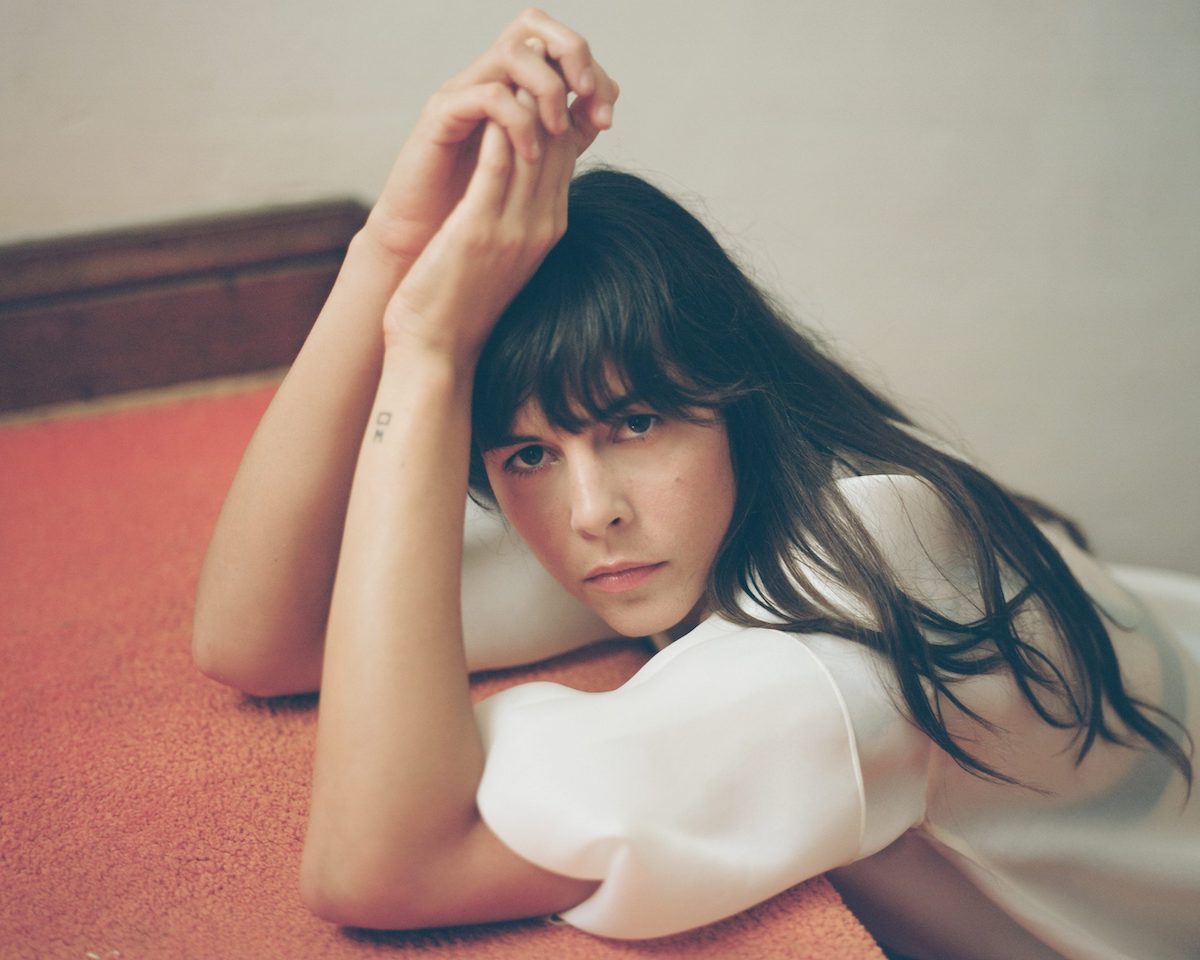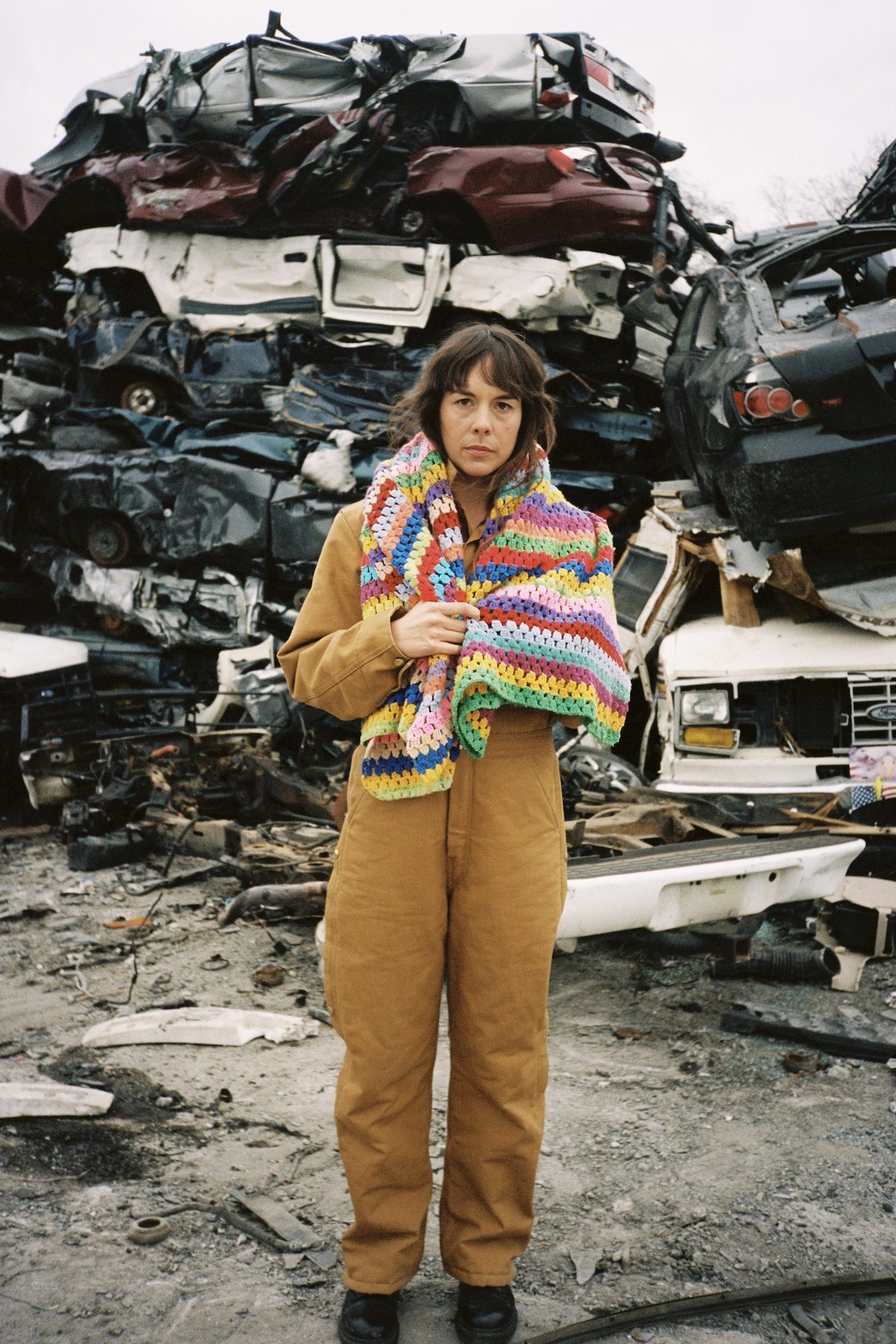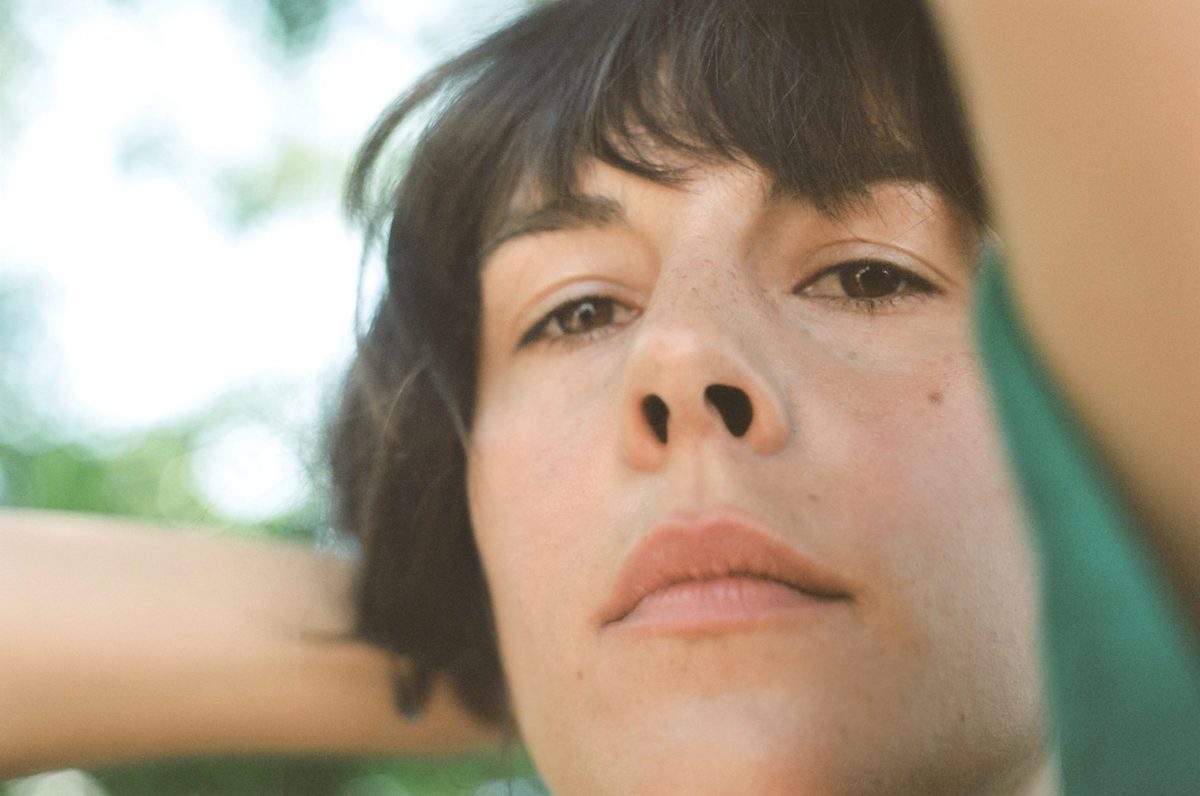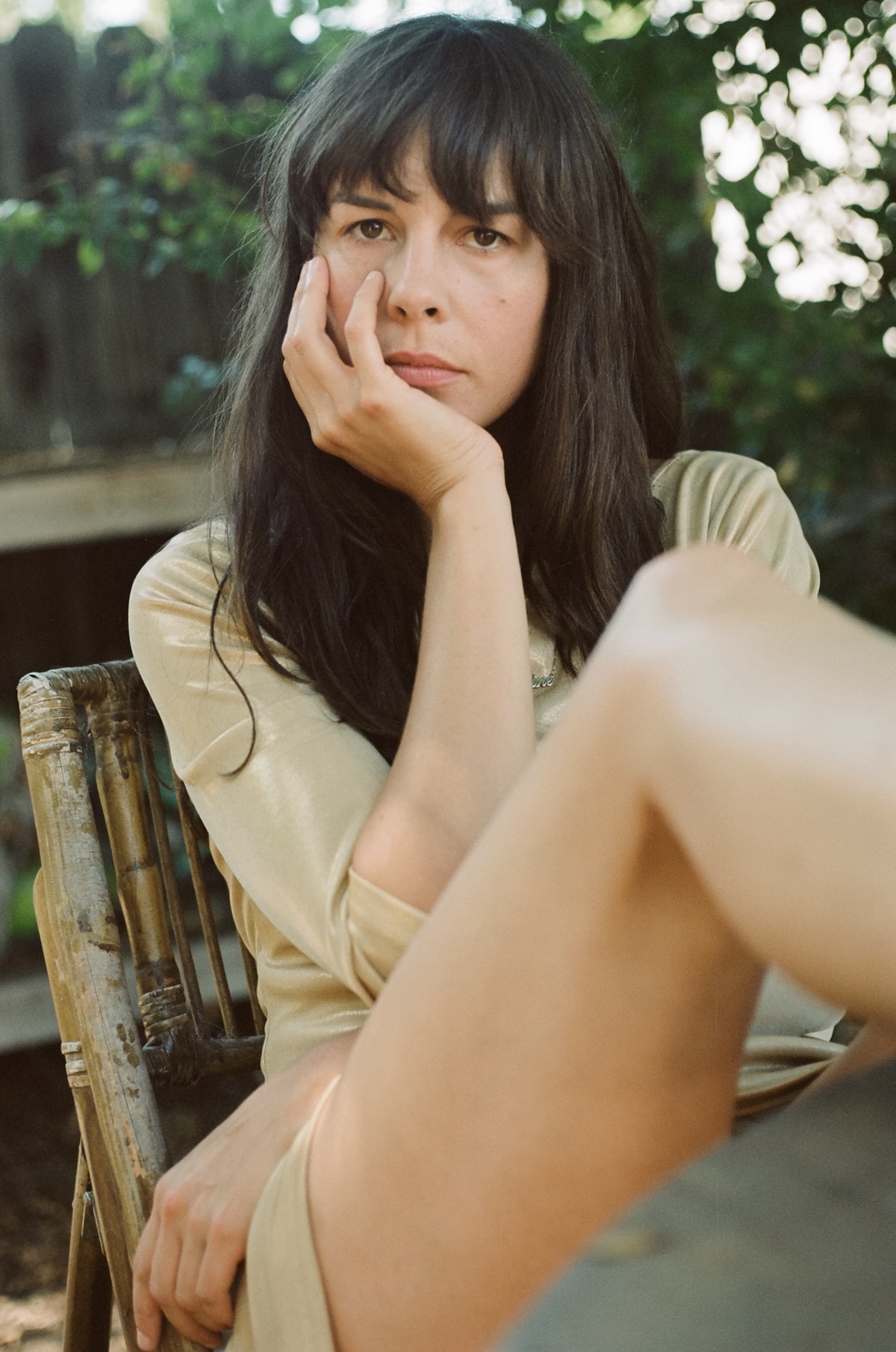The complex temporality of Madi Diaz’s History of a Feeling
Music — 24.11.21
Words: Sofia Wolfson
Editor: Silken Weinberg
Photography: Lili Peper, Natalie Osborne

Photo by Lili Peper
Madi Diaz’s latest record History of a Feeling makes a promise in its title: the songs explore how feelings evolve throughout time. There’s resentment, anxiety, longing, fear, anger, grief, acceptance, and all the subtle emotional stages in between. Never before have I heard a song like “Crying in Public” so poignantly capture the feeling of embarrassment and defeat that comes when you’re unable to keep it together on the subway. In “Think of Me,” one of the album’s most electric moments, Diaz belts out “I hope you fuck her with your eyes closed,” putting words to an often-unspeakable feeling, pure rage in the face of betrayal, the shock, disorientation, and exhaustion that follows.
The album acts as a frame around a specific heartbreak in Diaz’s life, as she takes a magnifying glass to the nuances of a relationship at its breaking point and the inevitable complexities of the aftermath. But it offers so much more than that. The specificity of her words unlocks the ability for these songs to relate universally; it’s her vulnerability that invites the listener to examine their own grief.
The first time I heard the lead single “Man in Me,” I felt like Diaz was talking right at me, or rather, had found her way inside my head. There are technical explanations for this: the presence of the vocal in the mix, the sparse instrumentation framing the lyrics, the way she belts out the chorus. But I didn’t want to figure it out. I just wanted to live inside the experience of listening. Her words walked me through patterns in my own life, hidden memories, corners of my recollection I hadn’t peered into in a while.
When I saw Diaz live, she offered a disclaimer right from the start: she wanted the audience to know that she’s actually doing alright now, despite all the heartbreak they were going to hear about (a quick glance at the tracklist provides a blueprint, as titles like “Rage,” “Resentment,” “Crying in Public,” “Nervous” show you where the record is headed). This version of Diaz, standing in front of a crowd singing these songs, finds new ways to relate to past emotional states without being beholden to them. Instead, History of a Feeling is a reckoning with one’s own personal history, how older, out-of-date feelings reappear in the present to teach us something. You no longer have to be resentful to get something out of “Resentment”. Songs like “Forever” ask questions of permanence: what does it mean when a love deemed “forever” has an end? The record navigates the powerful relationship between memory and one’s own experience of time.
History of a Feeling’s closing command, “If you’re gonna love me show me how / if you’re gonna hurt me do it now,” lingers and takes on new life. The lyrics resist confinement to a fixed point in time. Instead, “now” is continuous: it encompasses both a singular moment of heartbreak (the moment at which Diaz wrote the song), as well as a statement of the ongoing present. “Now” can be any time in which someone makes use of these words in their own healing. That is what makes her writing timeless.

Photo by Natalie Osborne
Sofia Wolfson: How are you? That’s always a good place to start.
Madi Diaz: I’m good. It’s sort of like things are trying to snap back into the way they were before covid, which is not real (laughs). I’m overwhelmed but sort of happy to be overwhelmed. I’m also simultaneously getting really psyched to just make soup for like a month.
We’ve got a random rainstorm over here in LA. It’s like fake winter. I love it.
It’s the best. It’s like: We could just live here forever and that’s fine.
Exactly! I know you’ve probably gotten this question a lot, but I think it’s a good place to start. How is your approach to songwriting different for writing for yourself versus writing for other artists?
It’s funny, I was just talking about this today with a friend of mine. I try to approach it all from the same place. I tend to think: if I don’t want to sing it, why would anybody else want to sing it? You just keep trying to say something true and something real. With this record particularly, there was so much to be said. It was just a matter of which ones hit the mark and how many times we could hit the mark as close as possible.
Do you have a fixed songwriting process or do songs pop up in different ways?
It depends. I really try to not have a fixed process because then it feels like I may as well be in a manufacturing plant, manufacturing manufactured songs. I try to come about it as differently as I can. Sometimes, you just have an idea or there’s a word that you love that you want to sing a certain way, usually, it starts with a seed like that. It really does happen differently every time, especially with the songs that turn into the special ones for you. Sometimes I forget how we even got there.
That’s the magic!
Right, that’s the goal. It’s like: What? Did we just write a thing? What just happened? How did that happen?
Is there a song on the record that especially does that for you, that how did that just happen feeling?
The song “Forever” was one of those. Both “Forever” and “Rage” were the songs that were so genuinely just a feeling. “Rage” especially was as if all of a sudden I was talking but I was singing and then the song was written. It just became this thing where I’m talking about this feeling and it just becomes: live and let go, I’ve tried that. It’s like a conversation you’re having with yourself as you try to work out a feeling. And “Forever” was like that a lot too. I think we wrote it in an hour and a half just talking. It felt like we cast a spell and then walked out of the spell circle and were like: Oh damn! We got a dope song! That’s cool!
Talking a little more about the album itself, what I think is so amazing is how sparse the arrangements are and how the song is really at the forefront. How did you go about arranging the record?
Luckily, we really didn’t have time to overthink things, which can be helpful under certain circumstances. You’re kind of trying to catch lightning in a bottle so I was just running forward. Andrew Sarlo, the producer for this record, is so wonderful at just kind of setting up a microphone and not overcomplicating the situation and being like, Yeah, play the song because when you play the song it’ll sound like you’re playing the song.

Photo by Lili Peper
I interviewed Buck Meek for his record and Sarlo did that one. They did everything live and it was all about where the mics were intentionally placed. I think that’s so much more powerful than I’ve comped this vocal take into oblivion.
Totally! This is where I run into not wanting to produce my own records although I’ve thought about it a bunch. I am an overthinker, I will overcook something. Even by myself, over covid, I spent a lot of time making my own demos and writing songs and then recording them. I would sit down with a bottle of wine and sing something 15 times only to wake up the next day and choose the second vocal take. There really was something super wonderful about catching the magic that was also swept up in the urgency of, we need to make a record. So, we just make the record.
Sometimes it’s the confinement in which the best stuff comes out as opposed to endless time to tinker.
Otherwise, I’d, I don’t know man, spend a year trying to arrange a song or pick a kick sound and that doesn’t sound very helpful for anybody. Then I’d have one song done and a kick sound that I really liked.
Exactly! I know you’ve done a bit of touring recently. Have these songs taken new shapes at all for you when playing them in front of such large audiences? And how do you relate to them differently, if at all?
It would be really hard to time travel and try to go back to the feeling-seed from which all of those songs were written. That would be such a major head trip. I do try to put myself in a now-sense when I’m playing these songs. Thankfully, they’re completely different every night. The melodies start to change and become something different. Something that maybe came out a little weak the first time comes out really strong and lifts in a different way. It’s fun when you’re playing by yourself. I’m super excited about playing with a band too but it’s been cool to relearn these songs and play with them by myself. I’m the one leading the charge and I can catch myself wherever I go.
I’m curious about this idea of past and present because I’ve talked to a lot of songwriters about it. I’ve read about how this album really captures a specific relationship and moment in your life. How do you relate the past and the present in songwriting? Do you think there’s more of a stark difference between the person who wrote the songs and the person you are now, or if they’re more enmeshed and intertwined?
The hope in writing a song is that on some level, you can grow together, traverse the future and revisit some of those bigger ideas. Take Joni Mitchell’s “Both Sides Now”. She wrote that song when she was 19 and she still sings it in her 70s. Man, how that song’s meaning is solidified in her age throughout the decades of her life. That’s the goal. That’s why I tried to pick songs for this record hoping that their meanings were expansive enough to wrap around different parts of my life.
The specific paving way for the universe seems like the goal because then other people can relate to it. When I listen to the record, it brings up so many emotions for me. We haven’t gone through the exact same thing, but I get something out of it.
A friend of mine in Texas texted me way before I released the record and asked me if I could send him a voice memo of “Crying in Public”. He had just lost his grandmother and that song was really holding a special place for him when working through that stuff. And I just thought: Oh my god, when you write a song about something so specific, you don’t realize how non-specific it can be.

Photo by Lili Peper
Totally. Just because I’m curious, what have you enjoyed doing recently that’s not music?
(laughs)
I always love asking people this because they seem to get amped when they get to talk about something else.
That’s so funny. I was very recently walking around thinking: well, what else do I do? I feel like I have other stuff, right? I’m positive that I do other things. I cook a lot when I’m home, or I try to when I have the energy because it does require some energy. I really love cooking. Honestly, if I could spend a whole day making a meal, that’s my ideal day. I’ll go get a really nice cut of something, marinate it, or salt and pepper it, and let it sit. I’ll plan my entire free day around this meal-having moment.
It’s great because there’s an end product. This feeling of I have accomplished this.
Ah! That moment! I think I spent four hours making meatballs and a sauce the other day and I thought: What else is there? This is the best! My favorite.
The key to life!
It really just is, man. If you can get a good meatball situation happening, a good bottle of wine, you’re listening to nice music, you got the dog. It’s so grounding. That’s how I ground.
What record would you hypothetically be listening to in that situation?
To be honest, in situations like that, I try not to listen to songs. It’s maybe the only scenario in which I can listen to jazz. Not to be a jerk, and I’m sure I’ll get shunned for saying this, but I really just can’t do jazz. It makes me feel like I’m going to have a panic attack. There’s nothing for me to hold on to so I feel like I’m suspended in space. It’s like somebody hit my foot really hard so I’m spinning through eternity.
Yeah, I mean, for songwriters like us, there’s sometimes the feeling of no home or 1 so it’s like: I don’t know where this is going. I can’t predict this.
Right! Are we going to land at any point or are we just suspended forever? But there’s something about cooking that makes me want to wander a little bit and not really want to know where I’m going and just kind of be in every single moment. It’s the grounding openness of the thing; that’s why I’m cooking in the first place. I don’t why, it just matches. But it’s literally the only scenario. I can’t drive and listen to jazz, that makes me feel like I’m going to die. I can’t run and listen to jazz. I can’t chill and listen to jazz. But I can cook and listen to jazz.
Are there people that their running music is jazz?
That’s a really good point. I don’t think so.
I would love that though.
Oh my god.
I usually end with this: Is there an artist or somebody current that you’ve been digging?
Actually, she just followed me on Instagram and I’m embarrassed at how excited I got when I saw that. I don’t if you know who Maisie Peters is. She’s a little pop baby and I think she’s so on her shit. I love love love every single thing that she’s put out. I’m like: Damn bitch, you’re just singing it. Good work. It’s just like damn damn damn damn damn! She has all of the things and I think that she’s such a magical ball of energy.
Listen to Madi Diaz’s full album below and follow her on Instagram.